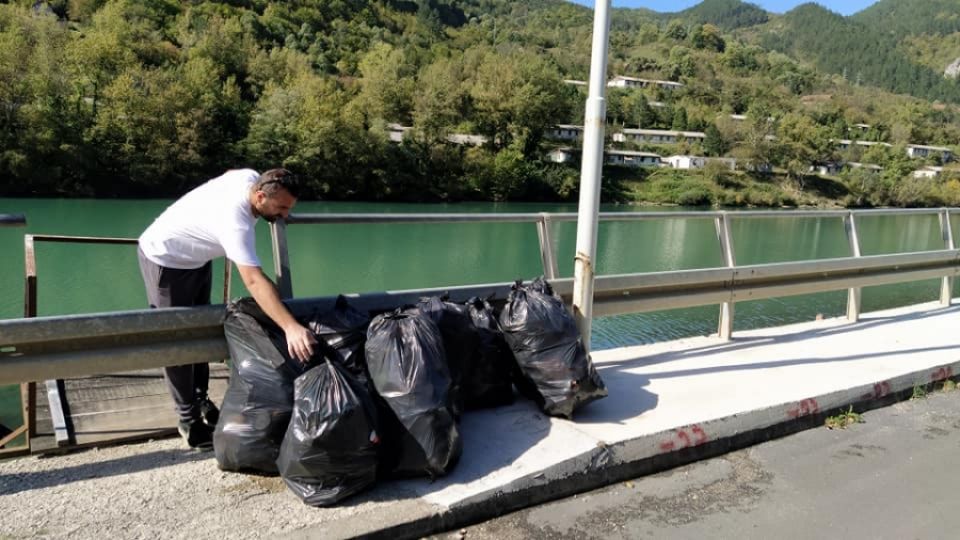In less than a month, five civic initiatives from Bosnia and Herzegovina have cleared rivers and riverbanks of trash at six locations. Each time, the organizers of River Cleaning 2020, together with volunteers, picked up kilos of plastic and other waste. “We are happy to help with cleaning our natural environment, but we wouldn’t have to if only people put their trash where it belongs,” the participants say.
The series of river-cleaning events started with several events on September 27th, 2020. The informal association “Valter brani Usoru” (“Walter defends the Usora”) from Tešanj conducted the cleaning symbolically at three spots on the River Usora where small hydropower plants are currently planned, according to the spatial plan. “The biggest amount of trash was found in the area of Jelah, but we have to say there was less garbage around the Usora than in the past years, which is commendable. Despite this fact, the volunteers picked up more than ten big bin-bags of various types of waste,” says Robert Oroz, one of the organizers from the ecological-humanitarian association Gotuša. Another association, “Eko put” from Bijeljina, cleaned the banks of the River Drina on September 27th.
Other locations were Konjic, where the “Pusti me da tečem – Neretvica” (“Let me flow – Neretvica”) association cleaned the banks of the River Neretva, mostly above the “Lukšijski most” swimming area, and Visegrad. “Here, except for the ‘regular garbage’ left by people, such as plastic bottles and similar litter, a group of about 15 volunteers from Ekocentar also found a pile of old tyres in the Rzav river basin,” Oroz points out. “For now, the last event took place on October 11th, when we focused on the River Željeznica in Fojnica and among the volunteers, there were a few kids too, caring about the condition and cleanliness of our rivers and excited to help, which is always supportive and nice to see,” he closes.
“Although the rivers of Bosnia and Herzegovina belong among the last natural watercourses in Europe and many of them are pure and clean, the pollution of the rivers is an issue. Waste prevention, collection, and recycling are poorly organized in the majority of the municipalities, and littering is widespread, too. As a result, a huge volume of waste ends up in the water. Volunteer events such as the waste collection show that each citizen can contribute to nature protection by doing his or her bit,” explains Vlastimil Karlik from the Czech non-governmental organization Arnika.







